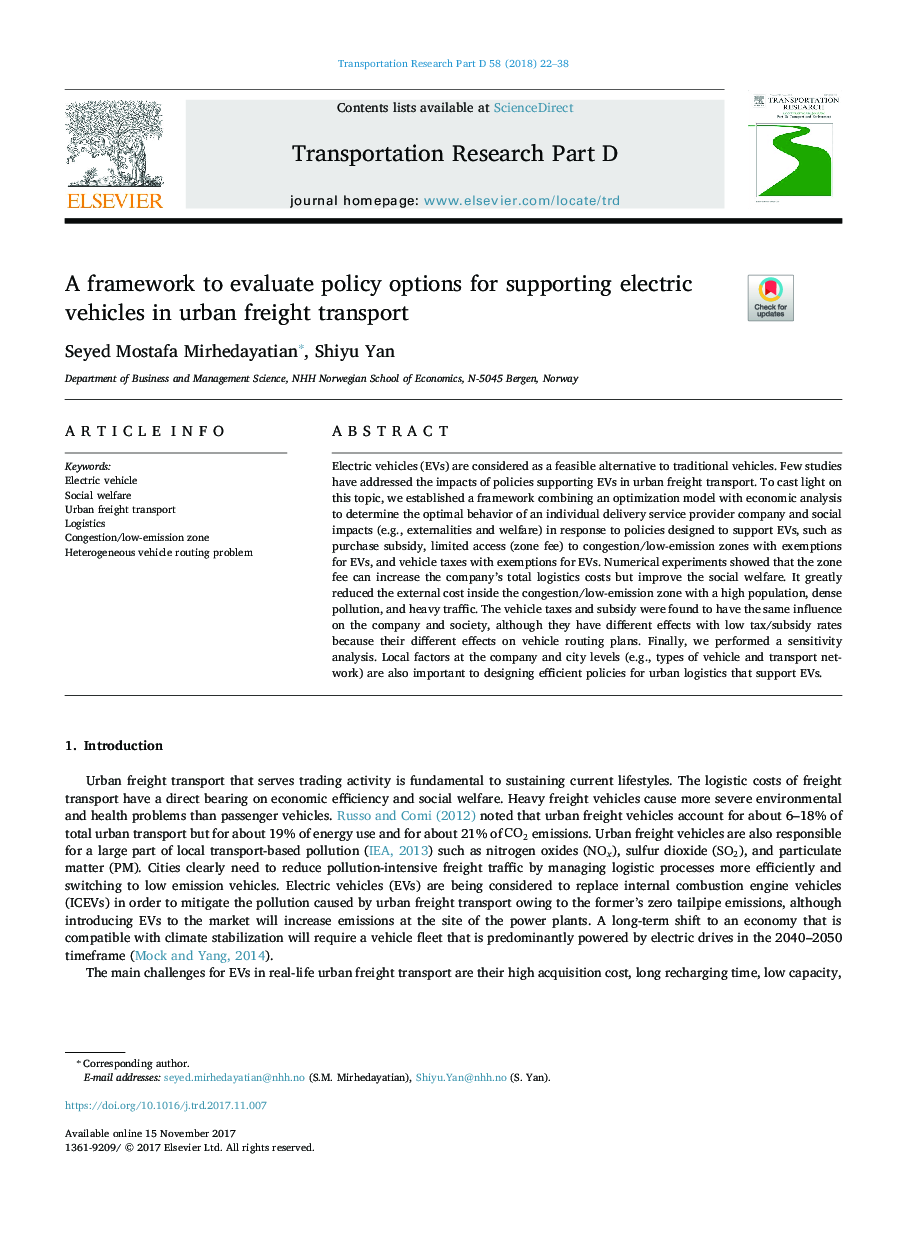| Article ID | Journal | Published Year | Pages | File Type |
|---|---|---|---|---|
| 7499253 | Transportation Research Part D: Transport and Environment | 2018 | 17 Pages |
Abstract
Electric vehicles (EVs) are considered as a feasible alternative to traditional vehicles. Few studies have addressed the impacts of policies supporting EVs in urban freight transport. To cast light on this topic, we established a framework combining an optimization model with economic analysis to determine the optimal behavior of an individual delivery service provider company and social impacts (e.g., externalities and welfare) in response to policies designed to support EVs, such as purchase subsidy, limited access (zone fee) to congestion/low-emission zones with exemptions for EVs, and vehicle taxes with exemptions for EVs. Numerical experiments showed that the zone fee can increase the company's total logistics costs but improve the social welfare. It greatly reduced the external cost inside the congestion/low-emission zone with a high population, dense pollution, and heavy traffic. The vehicle taxes and subsidy were found to have the same influence on the company and society, although they have different effects with low tax/subsidy rates because their different effects on vehicle routing plans. Finally, we performed a sensitivity analysis. Local factors at the company and city levels (e.g., types of vehicle and transport network) are also important to designing efficient policies for urban logistics that support EVs.
Related Topics
Life Sciences
Environmental Science
Environmental Science (General)
Authors
Seyed Mostafa Mirhedayatian, Shiyu Yan,
